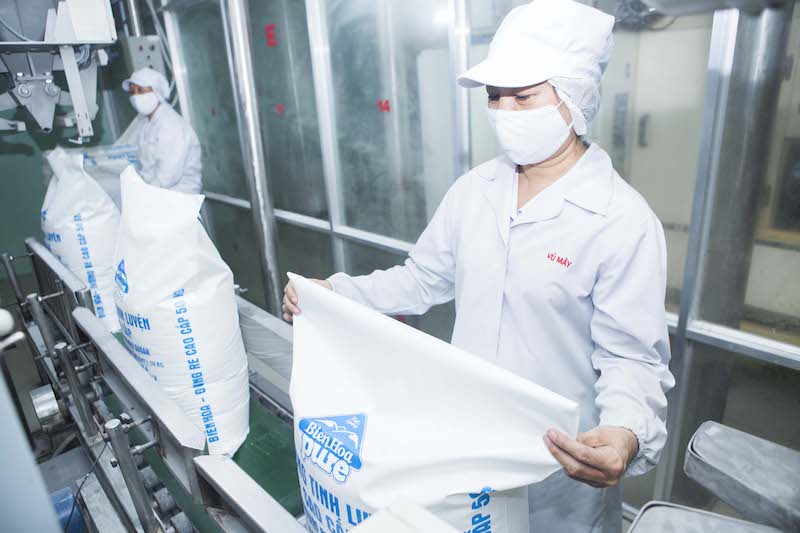Vietnam imposes anti-dumping and countervailing duties on Thai sugar
The move will ensure a fair and competitive environment for Vietnam's sugar industry.
Vietnam has slapped temporary anti-dumping and countervailing duties on sugar imported from Thailand, a move that will ensure a fair and competitive environment for Vietnam's sugar industry, according to Nguyen Van Loc, General Secretary of the Vietnam Sugarcane and Sugar Association (VSSA).
| Antidumping duties ensure fair competition in Vietnam’s sugar market. Photo: baocongthuong |
In 2020, Thai businesses shipped nearly 1.3 million tons of subsidized sugar to Vietnam, an increase of 330.4% against 2019, a probe by the Ministry’s Industry and Trade’s investigation launched last September revealed. The sharp increase in volume came from Vietnam’s commitment in the ASEAN Trade in Goods Agreement (ATIGA) to the sugar industry, under which, from January 1, 2020 ASEAN countries including Thailand have been able to export unlimited amount of sugar to Vietnam with the tariff of 5%.
This caused serious damage to Vietnam’s sugar industry, forcing domestic sugarcane factories to cease operation and lay off workers. As many as 3,300 workers have lost their jobs and more than 93,000 farmers have been affected.
The ministry’s investigation showed the Thai government has been maintaining a number of policies supporting sugarcane activities of farmers and the industry.
“Anti-dumping duty of 33.88% on Thai raw sugar and countervailing duty of 44.88% on refined sugar are reasonable,” Loc from the VSSA said. “The duties are well-grounded for offsetting subsidies that Thai sugar producers are receiving. Therefore, this decision will create a competitive environment in the coming time,” he added.
This decision is expected to help Vietnam's sugarcane industry overcome short-term difficulties posted by dumping, smuggling and unfair competition. However, in the long run, it is necessary for the domestic producers to seriously consider investing in improving technology, according to local experts.
The production process has not been mechanized, so the exploitation capacity is still weak. “The Vietnamese producers need a right investment strategy in technology,” Pham Tien Nam, vice chairman of the Vietnam Farmers’ Union said. Diversifying products, increasing added value from sugarcane are also important solutions to raise Vietnam sugar industry competitiveness.
Phan Van Chinh, Director of the Import-Export Department under Ministry of Industry and Trade, recommended that sugar businesses need to make better use of by-products from the sugar industry to find development chances.










